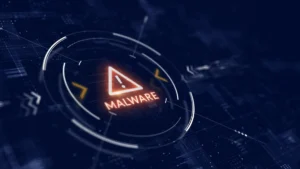
Cyber Security is the practice of protecting digital devices, networks, and sensitive information from unauthorized access, theft, or damage. As technology continues to advance, so do the methods used by hackers and cybercriminals to breach security systems. It’s essential to take the necessary steps to secure your digital assets and information to avoid becoming a victim of cyber-attacks.
In this article, we’ll explore the different aspects of cybersecurity, including the types of cyber threats, the importance of cybersecurity, and the best practices for staying safe online.
Types of Cyber Threats
The term “cyber threat” refers to any type of malicious activity that targets digital devices, networks, or information. Here are some of the most common types of cyber threats:
- Malware: Malware is software designed to damage or disrupt digital devices, networks, or systems. Malware can take many forms, including viruses, worms, trojans, and ransomware.
- Phishing: Phishing is a type of cyber-attack that involves tricking users into providing sensitive information, such as login credentials or financial details. Phishing attacks can take the form of emails, texts, or phone calls.
- DDoS Attacks: Distributed Denial of Service (DDoS) attacks involve overwhelming a website or network with traffic, rendering it unavailable to users. DDoS attacks are often carried out using a network of compromised devices, known as a botnet.
- Password Attacks: Password attacks involve attempting to guess or crack a user’s password to gain unauthorized access to their account. Password attacks can take many forms, including brute-force attacks, dictionary attacks, and credential stuffing attacks.
The Importance of Cyber Security
Cybersecurity is essential for protecting your digital assets and information from unauthorized access, theft, or damage. Here are some of the reasons why cybersecurity is so important:
- Protects Sensitive Information: Cybersecurity helps to protect sensitive information, such as personal data, financial information, and trade secrets, from falling into the wrong hands.
- Maintains Business Continuity: Cybersecurity is essential for maintaining business continuity. Cyber-attacks can disrupt operations, causing downtime, lost revenue, and reputational damage.
- Compliance Requirements: Many businesses are required by law to comply with cybersecurity regulations, such as the GDPR and CCPA. Failure to comply with these regulations can result in significant financial penalties.
Best Practices for Staying Safe Online
Here are some of the best practices for staying safe online and protecting your digital assets and information:
- Use Strong Passwords: Use strong, unique passwords for all of your accounts, and never reuse the same password across multiple accounts.
- Keep Software Updated: Keep your operating system, apps, and antivirus software updated to ensure that you’re protected against the latest threats.
- Use Two-Factor Authentication: Use two-factor authentication (2FA) to add an extra layer of security to your accounts. 2FA requires you to provide a second factor, such as a fingerprint or a code sent to your phone, in addition to your password.
- Be Cautious of Phishing: Be cautious of emails, texts, or phone calls asking you to provide sensitive information or click on a link. Always verify the authenticity of the request before providing any information.
- Backup Your Data: Regularly backup your important data to ensure that you can recover it in the event of a cyber-attack or data loss.
Conclusion
Cybersecurity is essential for protecting your digital assets and information from cyber threats. By understanding the types of cyber threats, the importance of cybersecurity, and the best practices for staying safe online, you can take the necessary steps to secure your digital life. Remember to always stay vigilant and be cautious of potential threats, and you can enjoy safe browsing.

